The Karsten Collection: a Journey through Time
Step into the past with the Karsten Collection, a meticulously crafted set of virtual instruments that brings the sounds of centuries-old keyboards right to your fingertips.
Curated by Peter Karsten, an instrument collector from Braunschweig, Germany, this collection showcases a remarkable array of historical instruments, each with their own rich story to tell. Whether you're a classical composer, a baroque musician, or simply a vintage sounds enthusiast, the Karsten Collection offers an unparalleled experience of musical authenticity.
a Pianoteq instrument pack
Get this pack with Pianoteq Stage (2 packs), Standard (3), or Pro (4).
Buy Pianoteqstarting from 139.00 €
- Harpsichord, virginal, pianoforte and square pianos from the 17th to 19th century
- Accurate physical modelling of each instrument
- Perfect for Renaissance, Baroque and Classical music
- Versatile for modern compositions
- 35 presets included with varied tuning temperaments
Historic Instruments, Modern Power
Powered by the latest physical modelling technology of Pianoteq, this comprehensive collection features some iconic keyboards from the past, now brought to life in stunning detail:
- New York Steinway Square Piano (1858)
- Jacob Weimes Pianoforte (1780)
- Philippus Schmidt Square Piano (1780)
- Giovanni Giusti Harpsichord (1680)
- Joseph Salodiensis Virginal (1600)
Innovative tonal qualities
Each virtual instrument in this collection is meticulously physically modelled, resulting in incredibly detailed tonal features with impressively small file sizes — measured in megabytes, not gigabytes. This advanced modelling allows you to modify the sound through a range of physical parameters, giving you unprecedented control over the instrument's character.
The ‘Original’ preset of each instrument faithfully captures its current sound as it stands today, while other presets recreate the vibrant tones it would have produced when brand new.
Listen to the Karsten Collection
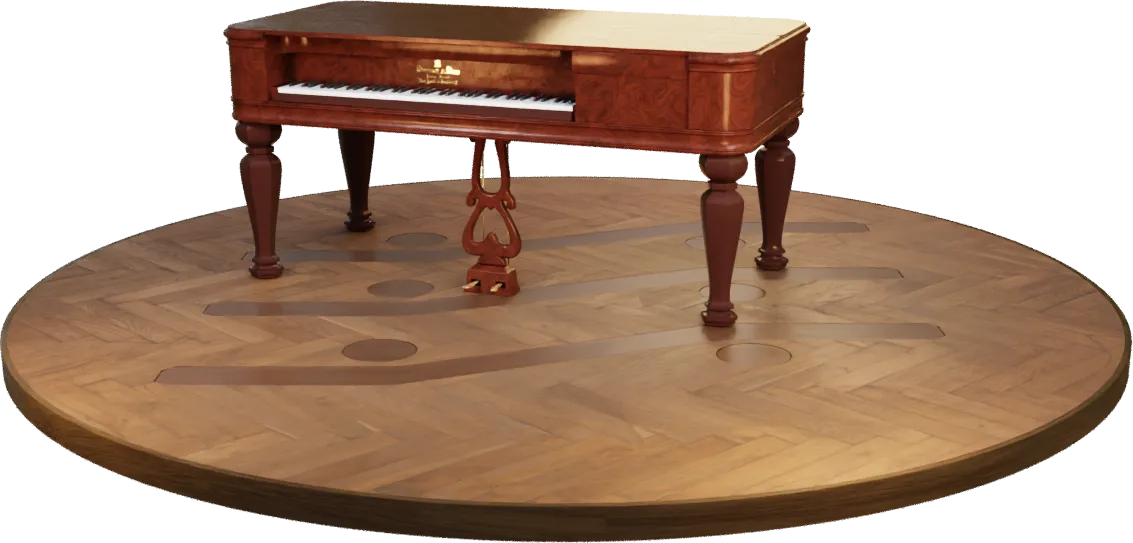
New York Steinway Square Piano (1858)
This is a celebrated 6½-octave iron-framed, overstrung square grand from the Steinway factory in New York. Although mechanically different from modern pianos, it contributed to a number of advancements that are still in use today. This virtual copy is evaluated and authorized by Steinway & Sons.
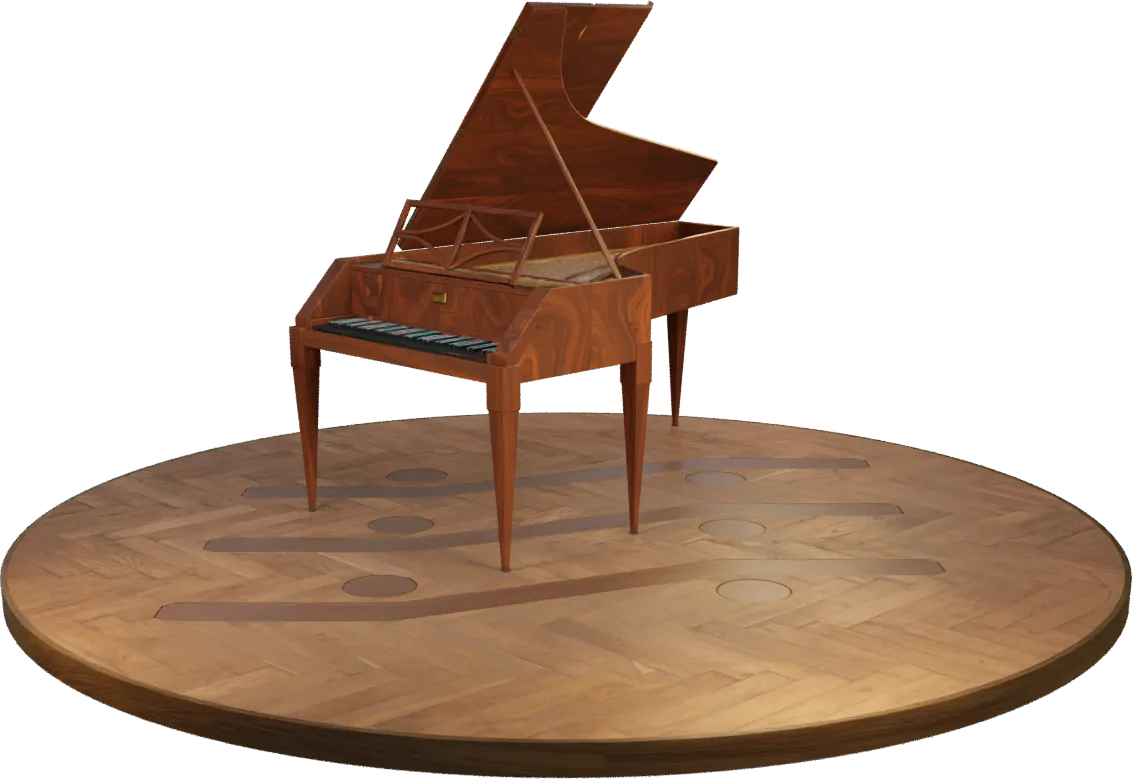
Jacob Weimes Pianoforte (1808)
Built in Prague, offering 5½ octaves, pedals and 3 strings per note, there is no doubt why Beethoven loved to play and compose on these Viennese type fortepianos, using its capacities to the limits. These instruments can be heard in recent recordings of Beethoven's piano sonatas.
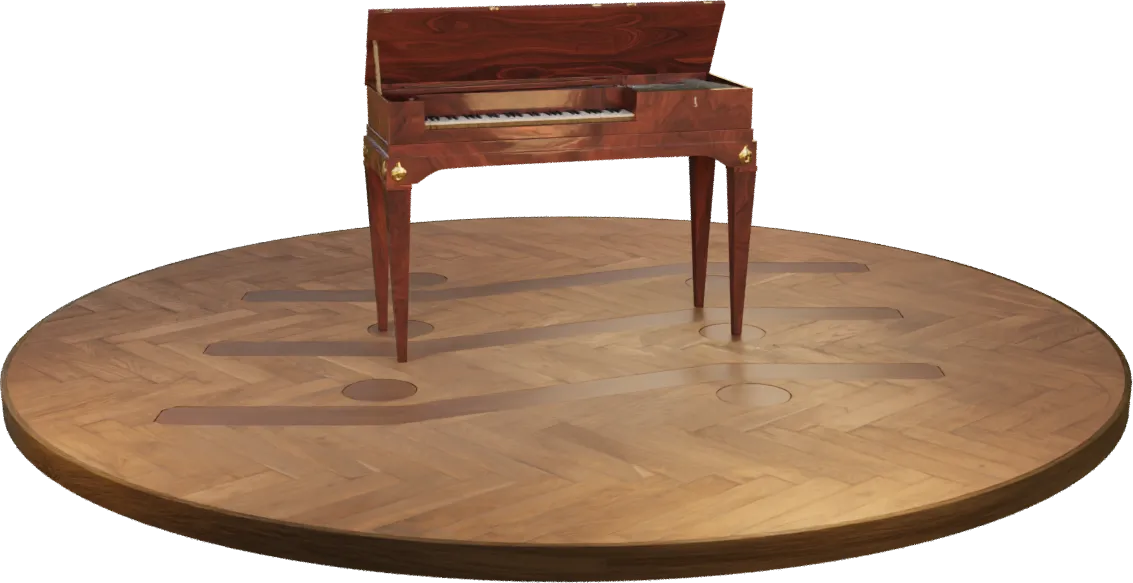
Philippus Schmidt Square Piano (1780)
This 5-octave square piano belongs to a generation of instruments that started to appear in the mid-18th Century and which immediately became a success due to its charming treble and its affordable price. It was easy to furnish and when closed it looked much like a side table. The instrument has the ability to accent and express, with varieties of loud and soft within a phrase.
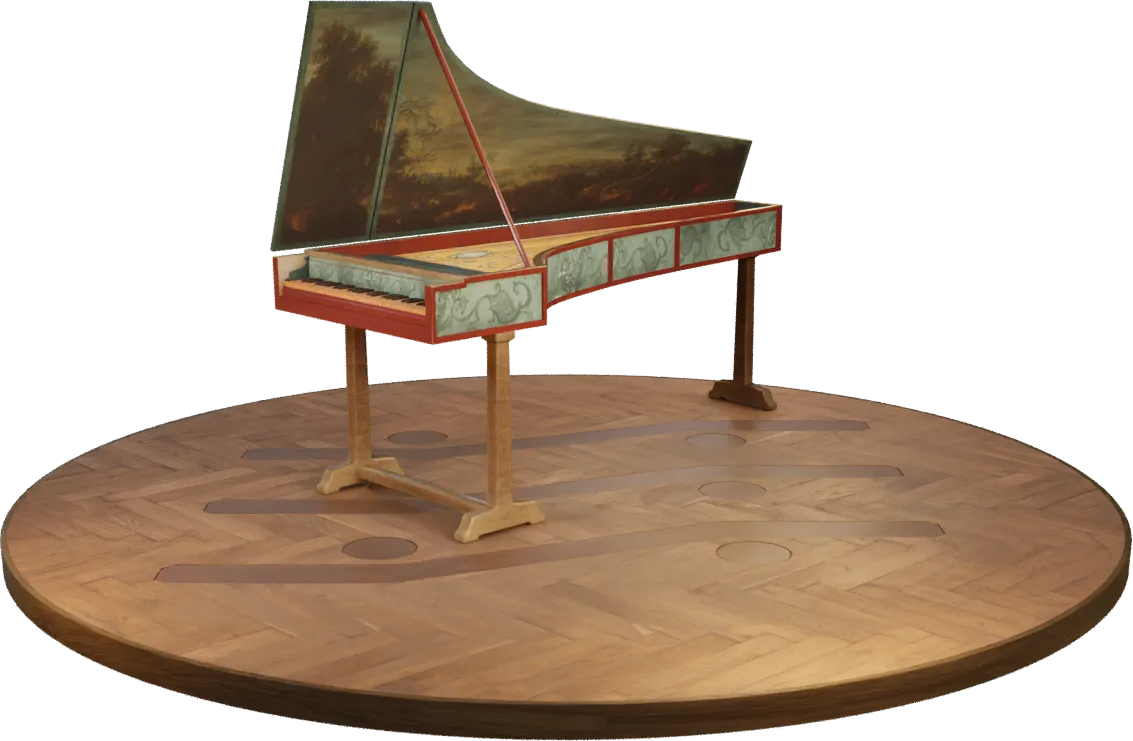
Giovanni Giusti Harpsichord (1680)
This 4-octave Italian harpsichord is characterized by a powerful attack, particularly useful in continuo playing. The tone is very rich in harmonics. It is able to provide excellent support even to a large orchestral group.
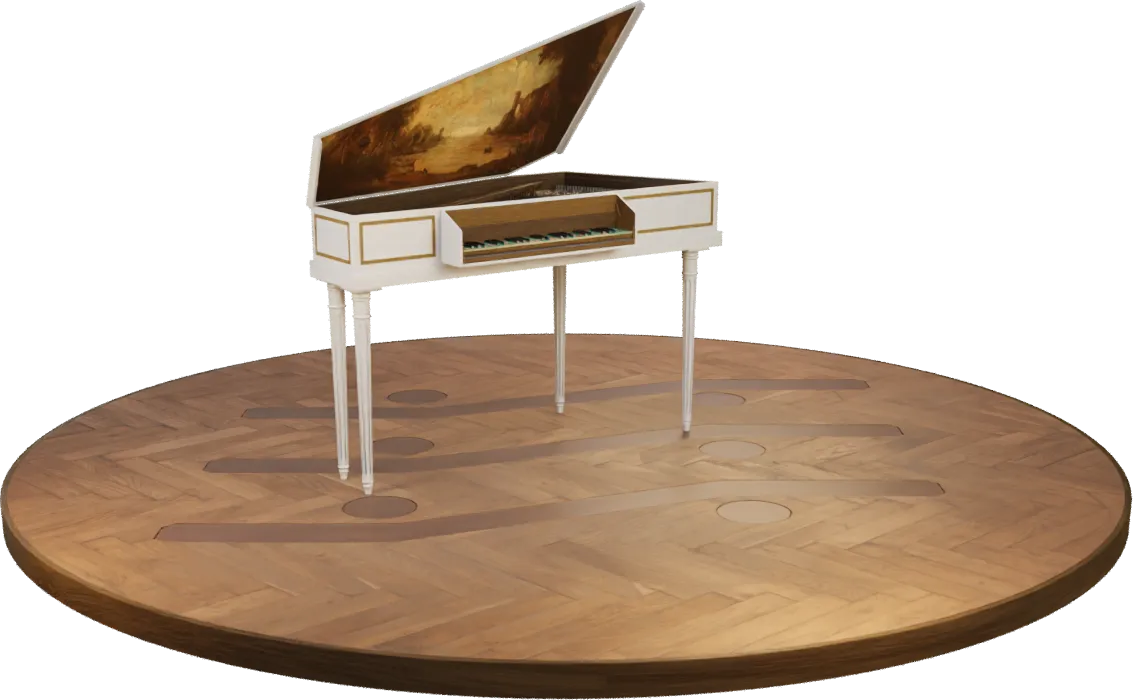
Joseph Salodiensis Virginal (1600)
The virginal is a 3½-octave instrument. Its small rectangular shape reminds of a clavichord, but its timbre is similar to a harpsichord due to the strings plucked by jacks. In 1460, Czech author Paulus Paulirinus wrote: "It is called a virginal because, like a virgin, it sounds with a gentle and undisturbed voice."
Colourful temperaments
Beyond the modern equal temperament, our instruments offer a range of exquisite tuning options, including the Baroque-era Werckmeister III, Neidhardt III, quarter-comma meantone, and the Bach-Kellner well temperament. These tunings are ideal for crafting period-accurate compositions — or infusing your modern music with a distinctive, vintage charm.
For those seeking even more control, users of Pianoteq Standard and Pianoteq Pro can access the Advanced Tuning window, offering limitless customization of diapason and temperament to perfectly tailor your sound.
Authorized by Steinway
The virtual copy of the New York Steinway Square Piano (1858) is evaluated and authorized by Steinway and Sons in New York. Moreover, Peter Karsten himself participated in many steps of the development of all the instruments — from the initial recordings in Braunschweig, Germany for the audio analysis until the final stages of the beta tests — together with a dedicated team of experienced musicians. That way, Modartt ensured that the authenticity of the instruments corresponds to the most demanding requirements, and is suitable for concert performance and recording.


